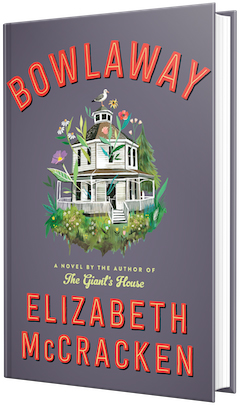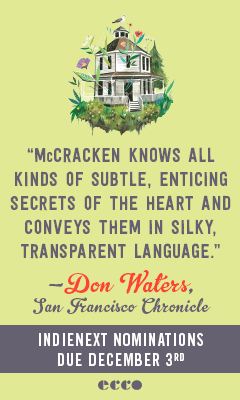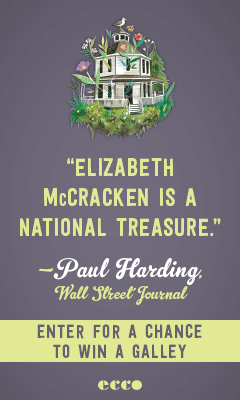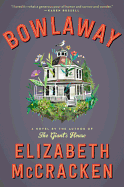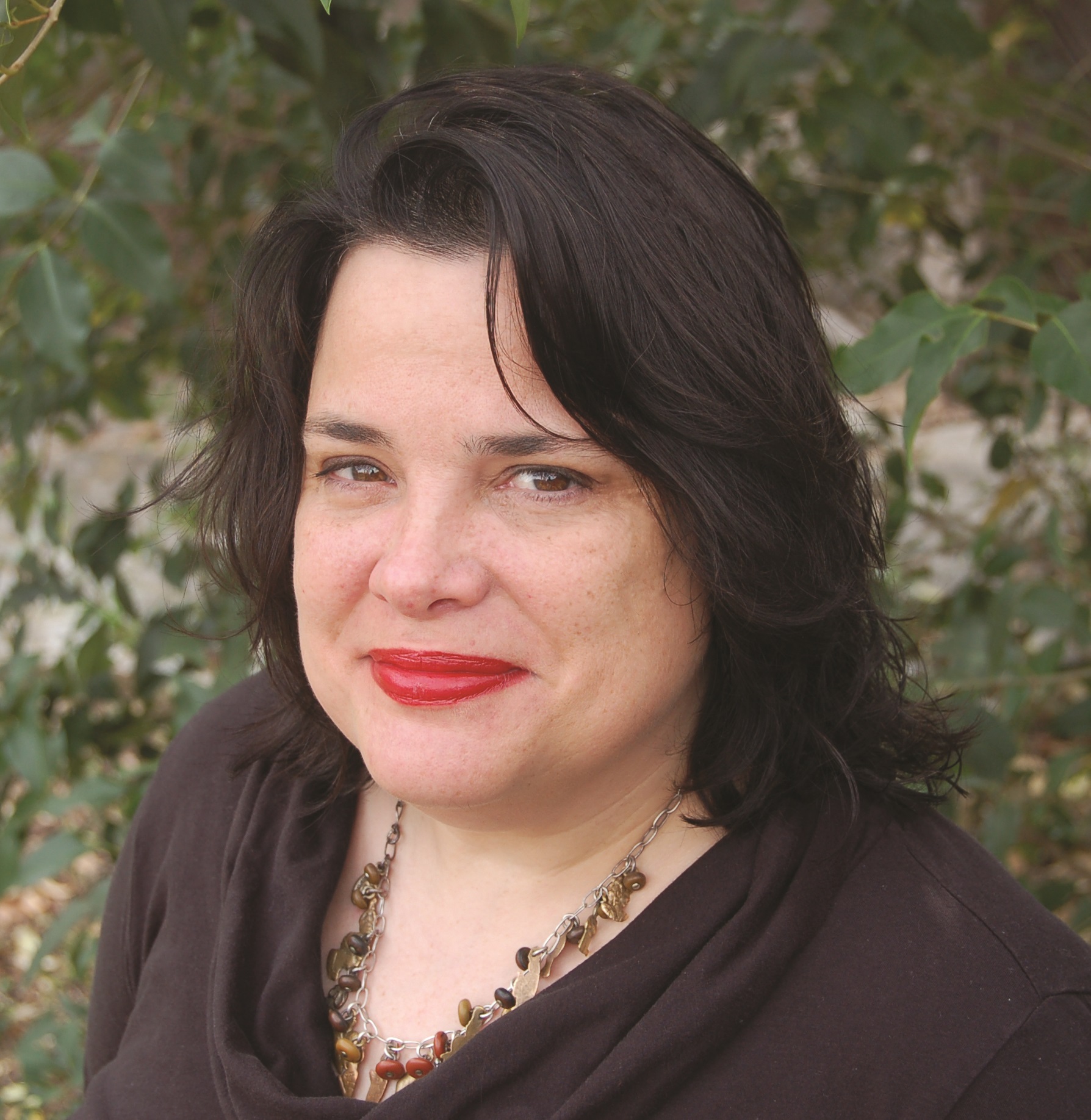Bowlaway
by Elizabeth McCracken
It can be hard, in a world with so very many books, to find something truly unique to write about. But Elizabeth McCracken (Thunderstruck, An Exact Replica of a Figment of My Imagination) has done just that in Bowlaway, a sweeping family saga centered on a bowling alley. And not just any old bowling alley, but a candlepin bowling alley, and not just any old story, but a love story. "Our subject is love," writes McCracken early in the novel, "because our subject is bowling. Candlepin bowling. This is New England, and even the violence is cunning and subtle."
This sets the tone for the rest of the tale, which is itself cunning and subtle, a carefully woven and darkly humorous account of one woman, Bertha Truitt, and the strange and lasting legacy of her fascinating and too-short life.
At the turn of the 20th century, in an imaginary New England town, Bertha Truitt arrives. She is not born--a woman like Bertha Truitt is, after all, too unusual to arrive in such a normal manner. No, she just arrives--fully formed and very much alive, on the cold cemetery ground, "as though she'd dropped from the sky."
Bertha's arrival sets off a chain of events as inexplicable as her appearance in the graveyard: she founds a candlepin bowling alley, claiming to have invented the sport. She appears in the dreams of her neighbors, whispering, "I have a game for you" and "it is possible to bowl away trouble." And, perhaps most importantly, she insists on allowing women to bowl in her alley, despite the protestations of the men in town.
"Well... I invented the game, so I suppose I make the rules," says Bertha to those who challenge her. And though it is unclear whether or not Bertha did, indeed, invent the game of candlepin bowling (or whether the truth of that fact matters), there is no doubt that she makes the rules: for her bowling alley, true, but also for her life. She is a woman who refuses to bend to expectations, instead crafting a life for herself out of what she wants. This is not to suggest that Bertha is perfect; on the contrary, she's incredibly flawed. She believes in phrenology and insists on living in an octagonal house and invents her own definitions for Latin words. She's only one of many perfectly imperfect characters scattered across the pages of Bowlaway, which starts with Bertha Truitt's extraordinary story and continues through generations of her family tree to nearly the present day.
As Bowlaway unfolds, the novel becomes many things: it is the story of an incredible and awesome woman and also the story of her legacy. It is the story of candlepin bowling, and the ways the sport mirrors life (or perhaps vice versa). It's a little bit whimsical and a little bit absurd and a little bit funny and a little bit sad. It is about grief and family and life and womanhood and the roles we play in our lives--whether we want to or not.
But it is also, as McCracken says in the pages of the novel, a genealogy. "Genealogy," she writes, "says that things happen in chronological order, but also all at once." And that's the genius of the structure of McCracken's novel: it is a genealogy, albeit a fictional one, that allows McCracken to slice through time, to weave a careful net of seemingly unrelated people who are inextricably tied to one another. That's what gives the novel the space to include so many disparate things (Phrenology! Dream walking! Bowling! Penpals! A wooden effigy! Spontaneous combustion! True love! False identities!) without feeling like a single thing, large or small, is out of place. They are each, as unrelated as they may seem, an integral part of the story of one family, starting with Bertha Truitt's appearance and descending through generations to a decrepit bowling alley that becomes the scene of a brutal murder.
"They hadn’t realized that bowling was so full of suspense. A story: our hero (the ball) sets out on his journey (the approach), travels the length of his world until he runs into trouble, acquits himself well or badly, end of chapter. Turn the page!"
Bowlaway hardly needs to contain a reminder to turn the page at the end of each chapter; it is a book that compels readers forward in time, as full of suspense as the sport around which it is centered. The only rein in that relentless forward progress are the stunning, beautiful sentences McCracken has packed cleverly into every paragraph, every page, every chapter--a delight to stumble upon, to pause and consider, and to read again and again. --Kerry McHugh



